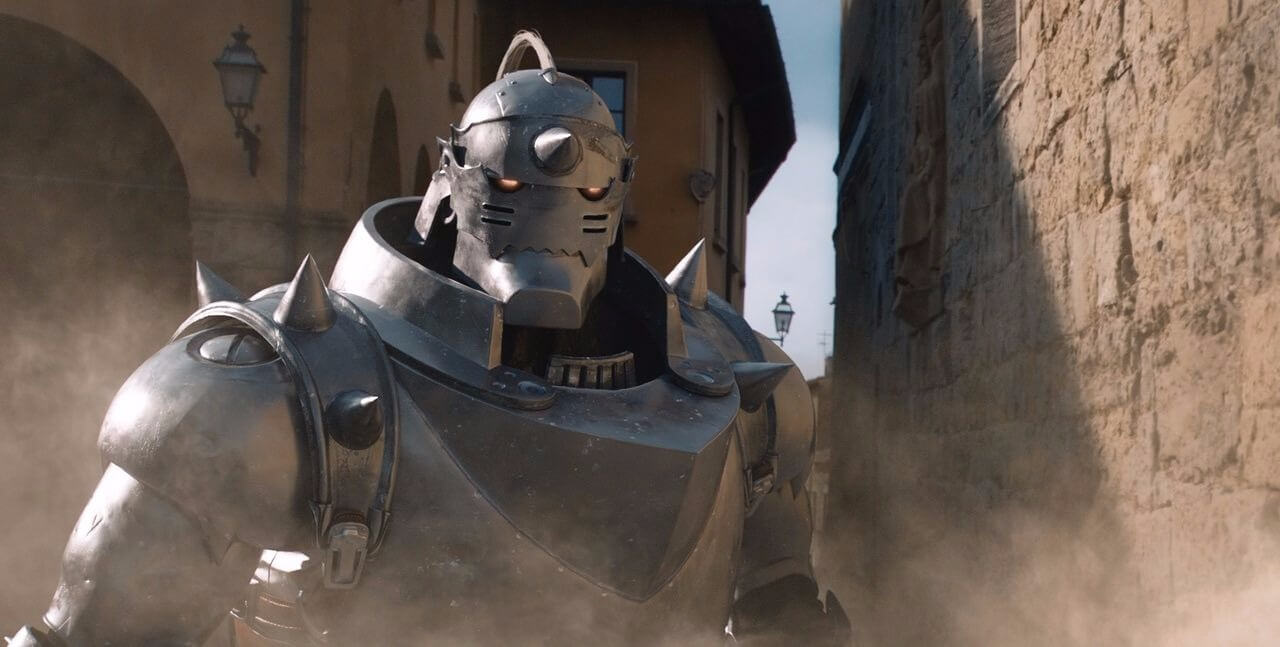Fullmetal Alchemist [2017] is a live-action adaptation of Hiromu Arakawa’s manga series by the same name. Arakawa’s manga is one of the most successful titles of the 2000s, selling almost 70 million copies worldwide. The story is set in an alternate version of early 20th-century Europe, where alchemy is possible and recognized as a legitimate form of science. The protagonists are two young brothers who break the taboo of human transmutation in a desperate attempt to bring their mother back from the dead. This attempt goes horribly wrong, forcing the brothers on a journey to recover their broken bodies. The live action adaptation, directed by Fumihiko Sori, was chosen to open the 2017 Tokyo International Film Festival.
The trouble with adaptations. Pulling off a live-action adaptation is notoriously hard. This was most recently demonstrated by Adam Wingard’s Death Note (2017), which was deemed a failure by most viewers and critics alike. In recent years, live-action adaptations have become increasingly common, but they are rarely known for their high quality. In this light, opening a film festival with such a work is quite a gamble. Fumihiko Sori is not new to this game, however, having previously adapted the manga series Ping Pong (2002) and Tomorrow’s Joe (2011) to the big screen. So how does his vision of Fullmetal Alchemist hold up?
Losing the plot. The dilemma of adapting a well-loved piece of literature or manga to the big screen is pinpointing the target audience: should the film focus on engaging newcomers or satisfying the existing fans? This dilemma, unfortunately, is one of the chief reasons why Sori’s FMA adaptation does not live up to its potential. One of the primary reasons why Arakawa’s manga was so popular was that she had a knack for worldbuilding and carefully developing an intricate story. The Elric brothers’ failed human transmutation is merely the starting point of a story which eventually grows to an epic scale. Of course, Arakawa had plenty of time to craft her narrative, as the manga ran for almost 10 years and ended up being 27 volumes long. There was always little chance of recreating that storytelling magic in the space of just one film, and unsurprisingly, it doesn’t really live up to its name. On one hand, the film flounders with too much clunky exposition, as characters are introduced in rapid-fire succession and backstories are explained with almost clinical efficiency. On the other hand, condensing the rich source material into a single 2-hour film makes it rather inaccessible for newcomers.
Equivalent Exchange in drama: can’t have payoff without setup. As someone who grew up reading Arakawa’s manga, I felt many of the key moments in the story were wasted by being used without adequate build-up. Standout moments and plot revelations are reduced to throwaway bits and pieces as the film runs through the motions at breakneck speed. While I think like the story of FMA has a lot of potential for a cinematic adaptation, it needed to be set up more carefully than this. Without getting to know the characters, the dramatic moments of the source material lose their emotional weight. Moreover, the darker plot elements are constantly jarring with the cartoonish visual style and the comedic moments. This is something that was always present in the source material – with its story of failed human transmutations and bloody military conspiracies, Fullmetal Alchemist often explored darker themes than other popular shonen manga series. However, adapting the story with human actors makes this tone deafness more glaring and detracts from the enjoyment of the film.
Visual appeal. While the film often fails to get its emotional tone right, it manages to impress with its setting and style. The pseudo-European, steampunk world of Amestris is portrayed vividly, with many parts shot on location in Europe. Apparently, one of the goals of the film is to demonstrate the technical potential of Japanese filmmaking today – and the CGI does look good. Battle scenes are consistently fun to follow, with plenty of explosions and acrobatics. If only the characters were as well-developed as the action scenes.
In spite of all, a memorable ride. Fumihiko Sori’s Fullmetal Alchemist is too unbalanced to be called a good piece of filmmaking, but it manages to be entertaining enough to not become a trainwreck. Recognising how enormously difficult it is to adapt a work like this into a film, Sori’s work holds up better than many similar adaptations.
The wild tonal shifts and colorful visual style make Fullmetal Alchemist an insane ride – at least it could hardly be called boring. Is it really good enough to open a film festival? Perhaps not, but I appreciate the boldness of the choice.

Fullmetal Alchemist made its World Premiere at the 2017 Tokyo International Film Festival.
Follow our coverage of this year's Tokyo International Film Festival
